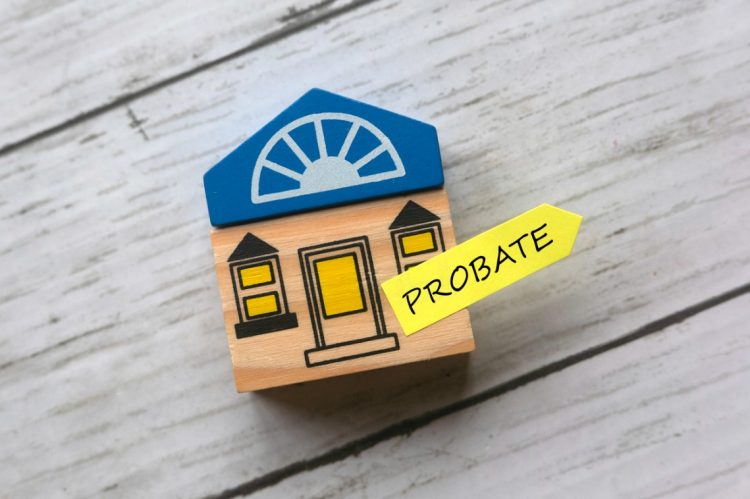Probate in real estate refers to the legal process of transferring property after a homeowner’s death. This process involves validating the deceased’s will, settling debts and distributing assets to heirs. Understanding probate is crucial for buyers, sellers and inheritors of real estate.
Understanding estate planning for the family should never be overlooked.
My guide will give you an easy-to-understand overview of the following:
- The probate sale process and how it differs from regular home purchases.
- Estate planning strategies to avoid probate and ensure a smooth asset transfer.
- Legal documentation, state-specific nuances and best practices for handling probate sales.
Understanding probate sales
What Is a probate sale?
A probate sale occurs when a property is sold during the probate process. Understanding how to sell a house in probate is essential for owners and REALTORS®.
This often happens if the deceased did not leave a will or the will specifies selling the property to distribute the assets among heirs. Probate sales are court-supervised, ensuring the property is sold at a fair market value and that proceeds are used to settle debts before being distributed to heirs.
Critical differences between probate sales and regular sales
- Court involvement: Unlike regular sales, probate sales require court approval at various stages, making the process longer and more complex.
- Appraisal requirements: The court mandates an appraisal to determine the property’s fair market value. This ensures the property is not sold for less than its worth.
- Offer process: Offers made on probate properties are typically subject to court confirmation, which can result in a public hearing where higher bids may be entertained.
- As-is sale: Properties sold through probate are commonly sold “as-is,” meaning the seller (estate) is not responsible for any repairs or upgrades.
Navigating a probate sale
Step 1: Appoint an executor
The probate court appoints an executor responsible for managing the deceased’s estate. This role includes inventorying assets, paying debts and taxes and distributing the remaining assets according to the will or state law if there is no will.
Step 2: Property appraisal
An independent appraisal is conducted to determine the market value of the property. This is crucial to ensure the property is sold at a fair price and helps set a minimum price for the sale. For tax purposes, the appraisal must also establish the value at the time of death.
Step 3: Listing the property
The executor lists the property for sale, often with the help of a real estate agent experienced in probate sales. The listing includes the appraised value as a guideline for potential buyers.
Step 4: Accepting offers
Buyers submit offers, usually with a 5% deposit or what’s customary in the area. The executor reviews the offers and selects the best one, but this selection is subject to court confirmation.
Step 5: Court confirmation
A court hearing is scheduled to confirm the sale.
Step 6: Closing the sale
Once the court confirms the sale, the closing process begins. This includes transferring the title to the buyer and distributing the sale proceeds to settle the estate’s debts and then to the beneficiaries.
Estate planning strategies to avoid probate
Create a living trust
A living trust allows you to transfer assets, including real estate, into a trust during your lifetime. You manage the trust while alive and upon your death, the trust transfers the assets to your beneficiaries without going through probate.
Example: Jane sets up a living trust and transfers her home into it. Upon her death, her home passes directly to her children without probate.
Joint ownership
Holding property in joint or tenancy by the entirety ensures the property passes directly to the surviving owner, bypassing probate. This method is standard among married couples.
Example: John and Mary own their home as joint tenants. When John dies, Mary automatically inherits the home without probate.
Payable-on-death (POD) designation
Designate beneficiaries for bank accounts and other assets to transfer directly upon death, avoiding probate.
Example: Mark designates his daughter as the POD beneficiary of his savings account. When Mark dies, the account transfers directly to his daughter.
Legal documentation and state-specific nuances
Key documents in probate
- Will: Specifies how assets are to be distributed. If there is no will, the state’s intestacy laws determine distribution.
- Death certificate: Needed to initiate the probate process.
- Letters testamentary: Issued by the court to authorize the executor to act on behalf of the estate.
- Inventory of assets: A detailed list of all estate assets, including real estate, is required to properly manage and distribute the estate.
State-specific probate rules
Selling in probate can vary by state, influencing how the process is handled and the complexity involved. For example, how things are done in Massachusetts can differ from other areas.
Some states offer simplified probate procedures for smaller estates, which can expedite the process.
Example:
- Estates valued under $166,250 in California can qualify for simplified probate procedures.
- In Texas, independent administration allows the executor to manage the estate with minimal court supervision, speeding up the process.
Best practices for handling probate sales
- Hire experienced professionals: Work with real estate agents and attorneys specializing in probate sales. Their expertise can help them navigate the complex process more efficiently.
- Stay organized: Keep detailed records of all estate assets, debts and transactions to ensure transparency and compliance with legal requirements.
- Communicate clearly: Maintain open and transparent communication with all heirs and interested parties to avoid misunderstandings and conflicts.
- Understand timelines: Be prepared for longer timelines due to court involvement. Probate sales typically take longer than regular real estate transactions.
Conclusion
Probate in real estate is the legal transfer of property after the owner’s death. It requires court approval and property appraisal and often involves selling the property “as-is.”
To avoid probate, consider estate planning strategies like creating a living trust, joint ownership, or designating payable-on-death beneficiaries.












